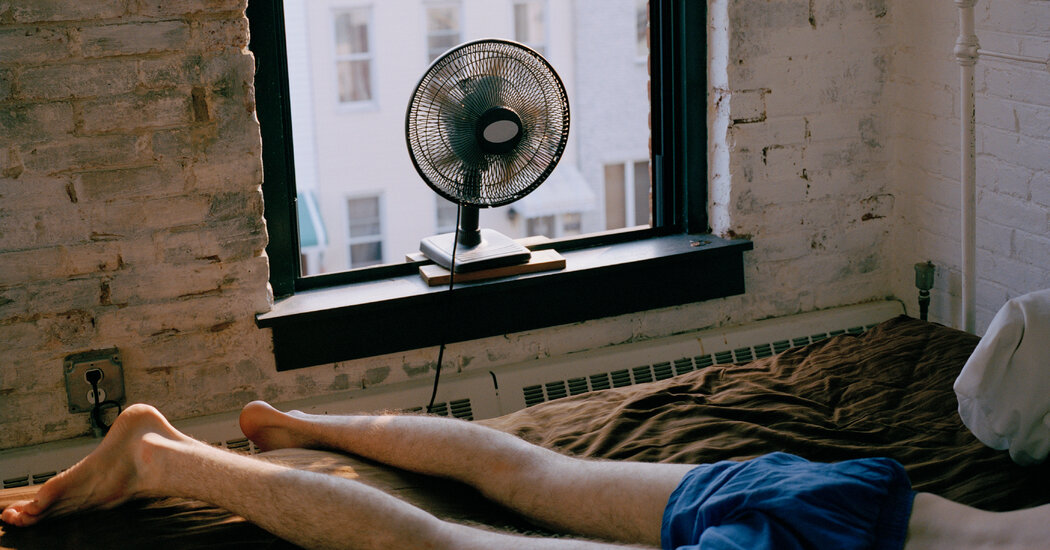A heat wave has scorched the Northeast, South, and Midwest this week, and those dangerously high temperatures can make it hard to sleep.
Studies show that extreme heat can affect both how much you sleep and how good that sleep is, said Chad Milando, a research scientist at the Center for Climate and Health at the Boston University School of Public Health. He and other experts said the people who are most vulnerable to poor sleep during a heat wave are low-income families who don’t have air-conditioning in their homes, as well as older adults or people with underlying health conditions that make them more susceptible to heat-related illness.
That’s why when temperatures rise, it’s essential to have a plan to keep cool when you sleep.
How Heat Affects Sleep
The body’s core temperature naturally drops during sleep, but hot environments can prevent the body from properly cooling. Studies also suggest that lower ambient temperatures signal to your body that it’s time to rest.
If the temperature in your bedroom is too high, it may be difficult to fall asleep, and you may wake up more frequently throughout the night, said Dr. Michael Irwin, a professor of psychiatry and biobehavioral sciences at the University of California, Los Angeles. You may also get less restorative sleep, he added.
To help your body regulate its temperature, your bedroom should ideally be between 65 and 68 degrees Fahrenheit, said Rebecca Robbins, an assistant professor of medicine in the sleep medicine division at Harvard Medical School. If your room is far hotter, you may wake up throughout the night, particularly during the stages of sleep when it’s not possible for the body to regulate its own temperature, she said.
“When exposed to extremes, we’re likely to wake ourselves up in order to shiver or wake ourselves up in order to sweat,” Dr. Robbins said.
Set Yourself Up for a Good Night’s Rest
There are steps you can take to sleep better during a heat wave, beyond just turning on air-conditioning, experts said.
“Sleeping well at night starts with staying hydrated and cool during the day,” Dr. Milando said. Drinking plenty of water when it is hot outside ensures that your body has enough fluid to cool down. When you’re dehydrated, you sweat less, and it becomes easier to overheat.
You can also keep your home cooler by closing your blinds or curtains to filter out direct sunlight, experts said. Keeping air circulating in your bedroom can also help. If you don’t have an air-conditioner, install a fan in an open window, which will help bring in the cooler air from outside, Dr. Robbins said.
To lower your body temperature before bed, place a damp rag on your forehead, Dr. Irwin said. “The moisture in that rag is going to evaporate across the night,” he said. But avoid ice packs, experts said, since placing them on your skin for too long can damage skin or cause frostbite.
Dr. Robbins recommended sleeping under a thin top sheet, which can promote airflow and make it easier to stick out your limbs out from under the sheet when you feel too warm. Pajamas should also be thin and loose to avoid trapping in heat. But when it’s extremely hot, “it might be a good time to try your birthday suit,” Dr. Robbins said.
If you are struggling to sleep peacefully during a heat wave, resist the urge to toss and turn in bed — it’ll only make you hotter, Dr. Robbins said.
“Try not to kick yourself for being awake, which we can all do,” she said. “Maybe get up, use the bathroom, try to keep the lights low, and then come back to your bedroom when you’re tired and get into bed when you are ready to sleep.”







